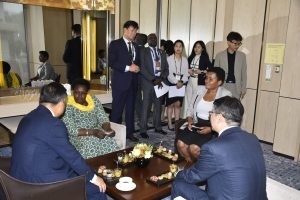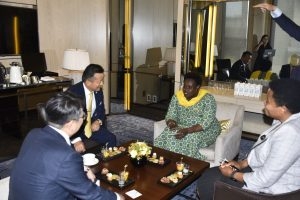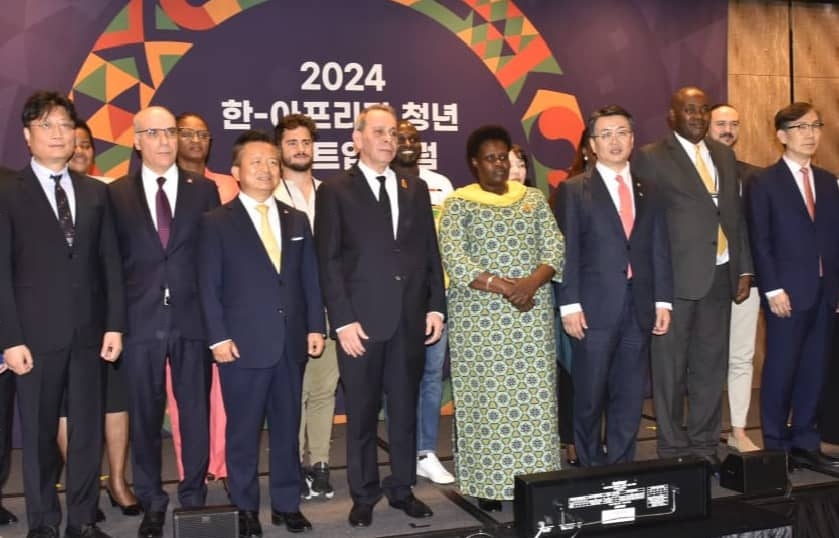By Richard Onapatum
SEOUL, SOUTH KOREA:Vice President Maj. (Rtd) Jessica Alupo inaugurated the Korea-Africa Youth Start-Up Forum in Seoul, South Korea, this morning. Organized by the Ministry of Foreign Affairs of the Republic of Korea, the forum runs alongside the Korea-Africa summit.
In her opening remarks, Vice President Alupo highlighted the collaborative efforts between the Republic of Korea and Uganda, particularly the implementation of the Youth Start-up Academy Uganda (YSAU) project in 2022. In partnership with the Korea SMEs and Start-ups Agency (KOSME), the project aims to incubate 1,000 young entrepreneurs by 2024.

“We are not far from achieving those goals. By the end of 2023, the project had supported 545 entrepreneurs, offering services such as access to co-working spaces, expert coaching, international market exposure, investor linkages, and Foreign Direct Investment in start-ups,” Alupo stated.
She emphasized the importance of leveraging youth dynamics and demographics for economic progress. “Future economies will thrive not just by the collective strength of the youth, but also by the amount of knowledge our societies can hold and share,” she noted.
Alupo lauded the success of YSAU graduates, who have completed an intensive six-month incubator course. “Since the program’s inception by KOSME in Korea in 2011, it has supported the creation of 4,798 startups, including two unicorns with a market valuation exceeding USD 1 billion,” she said. Ugandan alumni have raised over $200,000 and generated $3.3 million through various start-ups.
The Youth Start-up Academy has also established a state-of-the-art collaboration space at Hive Co-lab in Kampala, enabling young Ugandans to innovate and bring their products to market.

Vice President Alupo stressed the importance of advanced technologies and digital transformation in accelerating Uganda’s National Development Plan (NDPIII). With 53.52 percent of the population aged between 15 and 64 years, Uganda’s focus is on educating, supporting, and nurturing a productive youth contributing meaningfully to the economy.
“The success of Korea in transforming from an agrarian to a knowledge-based economy, with extensive entrepreneurial skills, compels us to strengthen bonds in the ICT sector,” Alupo remarked.
In conclusion, she expressed optimism for continued collaboration, emphasizing knowledge transfer as a key to enabling Africa to leapfrog into the knowledge economy, driven by a critical mass of startups resulting from partnerships with the Republic of Korea.


